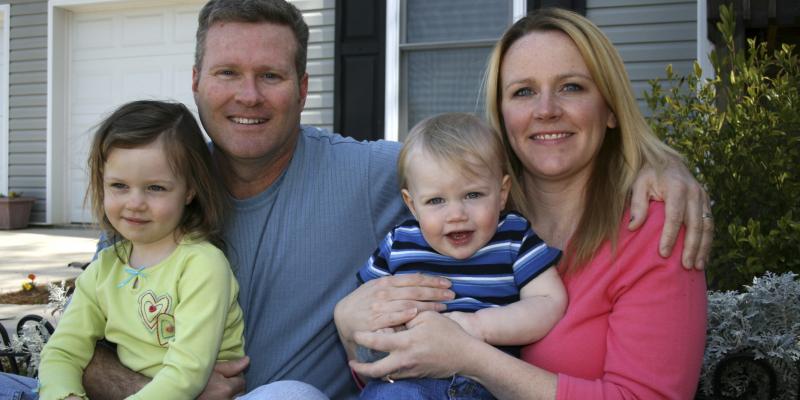
Release No. 012715-3
Press Contact Only:
Connie Helmlinger, NCHFA, 919-877-5607 cshelmlinger@nchfa.com
Brian Rapp, NCHFA, 919-877-5655 bprapp@nchfa.com
A statewide foreclosure prevention effort has now enabled more than 18,000 North Carolina homeowners to save their homes since the program began in 2010.
The NC Foreclosure Prevention Fund makes monthly mortgage payments on behalf of qualified unemployed homeowners, including returning veterans, while they look for jobs or complete job training. Funding is still available to help approximately 3,000 more homeowners. The program is offered statewide by the NC Housing Finance Agency and funded by the U.S. Department of the Treasury’s Hardest Hit Fund program.
In 2014, eligibility was expanded to include returning veterans using the GI Bill to attend school or a qualifying training program, as well as people who are back in the work force but cannot afford their mortgage payments because they are earning less than before. Homeowners seeking new employment after financial hardships resulting from divorce or death of a spouse may also qualify.
“While both the economy and the foreclosure rate have improved in North Carolina, home foreclosures are still occurring in greater numbers than before the Great Recession,” said A. Robert Kucab, executive director of the North Carolina Housing Finance Agency. “There were more than 32,000 filings in North Carolina last year.”
“Every foreclosure is a huge loss for the homeowner’s family, but also for the state’s economy,” Kucab said. “So far, this effort has preserved more than $3 billion in property values statewide.”
One homeowner who has benefited is Kathryn D., a Charlotte auditor whose job was eliminated in 2012. “If I hadn’t found out about the North Carolina Foreclosure Prevention Fund, I would have lost my house, no doubt,” she said. “It kept a roof over my head at a time when we couldn’t pay all our bills or even buy enough food. I would have lost my house and been living on the street.” The program helped Kathryn and her husband maintain their home until she found employment in January 2014.
There is no cost to homeowners for assistance, and homeowners do not need to be behind on their mortgage payments to qualify. Assistance is offered in two forms:
- A zero-interest, deferred loan of up to $36,000 paying mortgage and related costs for up to 36 months while the unemployed homeowner seeks or retrains for a job.
- A zero-interest loan to pay off a second mortgage. This can reduce the homeowner’s total monthly payment to an affordable level, and can help a homeowner who finds a new job, but at reduced income.
Homeowners who are re-employed, but have fallen behind on their payments, can use the loan to bring their mortgage current; those who are re-employed at a lower wage may qualify for monthly assistance while they continue to seek higher-paying work.
The NC Housing Finance Agency, a self-supporting public agency, has financed more than 231,000 affordable homes and apartments statewide since its creation in 1973.
###